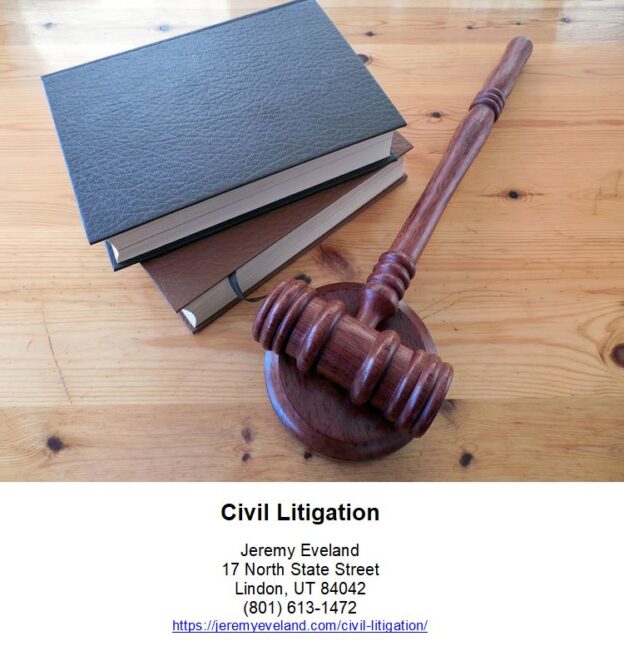-
Attorney at Law
- Introduction
- What are the Legal Rights and Responsibilities of an Executor of an Estate?
- What are Letters of Administration for an Executor of an Estate?
- What is the Process for Applying for Letters of Administration for an Executor of an Estate?
- What are the Tax Implications for an Executor of an Estate?
- What is an Inventory of An Estate?
- What are the Duties of an Executor of an Estate?
- What is the Role of a Lawyer for an Executor of an Estate?
- How to Choose the Right Lawyer for an Executor of an Estate?
- Q&A
“Your Estate, Your Peace of Mind – Let a Lawyer for an Executor of an Estate Help You.”
Introduction
A lawyer for an executor of an estate is a legal professional who provides legal advice and assistance to the executor of an estate. The executor is the person responsible for carrying out the wishes of the deceased, as outlined in the will. The lawyer for an executor of an estate helps the executor to understand their legal obligations and to ensure that the estate is administered in accordance with the law. The lawyer can provide advice on the best way to manage the estate, including the distribution of assets, the payment of debts, and the filing of taxes. The lawyer can also help the executor to resolve any disputes that may arise during the administration of the estate.
What are the Legal Rights and Responsibilities of an Executor of an Estate?
As an executor of an estate, you have a number of legal rights and responsibilities. It is important to understand these rights and responsibilities in order to properly fulfill your role.
Legal Rights
As an executor, you have the right to access the deceased’s assets and records. This includes bank accounts, investments, and other financial documents. You also have the right to hire professionals to assist you in the administration of the estate, such as attorneys, accountants, and appraisers.
Legal Responsibilities
As an executor, you are responsible for managing the estate’s assets and distributing them according to the deceased’s wishes. This includes paying any outstanding debts, filing taxes, and distributing assets to beneficiaries. You are also responsible for ensuring that all legal requirements are met, such as obtaining court approval for certain actions.
In addition, you are responsible for keeping accurate records of all transactions and filing the necessary paperwork with the court. You must also keep beneficiaries informed of the progress of the estate and any changes that may occur.
Finally, you are responsible for ensuring that the estate is properly administered and that all assets are distributed according to the deceased’s wishes. This includes ensuring that all taxes are paid and that all debts are settled.
It is important to understand your legal rights and responsibilities as an executor of an estate. By understanding these rights and responsibilities, you can ensure that the estate is properly administered and that all assets are distributed according to the deceased’s wishes.
What are Letters of Administration for an Executor of an Estate?
Letters of Administration are documents issued by a court that grant an executor the authority to manage the estate of a deceased person. The executor is responsible for collecting and distributing the assets of the estate, paying any debts, and filing the necessary tax returns.
The executor must first apply to the court for Letters of Administration. This application must include a copy of the death certificate, a list of the deceased’s assets and liabilities, and a list of the heirs and beneficiaries. The court will review the application and, if approved, will issue the Letters of Administration.
Once the executor has the Letters of Administration, they can begin the process of administering the estate. This includes collecting and distributing assets, paying debts, filing tax returns, and distributing the remaining assets to the heirs and beneficiaries.
The executor must also keep accurate records of all transactions and provide regular updates to the court. The executor is also responsible for filing the final estate tax return and distributing any remaining assets to the heirs and beneficiaries.
Letters of Administration are an important part of the estate administration process and are necessary for an executor to properly manage the estate of a deceased person.
What is the Process for Applying for Letters of Administration for an Executor of an Estate?
The process for applying for Letters of Administration for an Executor of an Estate involves several steps. First, the Executor must obtain a copy of the death certificate and any other documents that may be required by the court. Next, the Executor must file a Petition for Letters of Administration with the probate court in the county where the deceased resided. The Petition must include the name of the deceased, the names of the heirs, and the Executor’s name and address.
Once the Petition is filed, the Executor must provide notice to all interested parties, such as the heirs and creditors of the estate. The Executor must also provide proof of publication of the notice in a local newspaper. After the notice period has expired, the Executor must appear in court for a hearing. At the hearing, the Executor must present evidence to the court that they are qualified to serve as Executor of the estate.
If the court finds that the Executor is qualified, the court will issue Letters of Administration. The Letters of Administration are a legal document that grants the Executor the authority to manage the estate. The Executor must then use the Letters of Administration to open a probate estate and begin the process of settling the estate.
What are the Tax Implications for an Executor of an Estate?
As an executor of an estate, it is important to understand the tax implications associated with the role. Executors are responsible for filing the final income tax return of the deceased, as well as any other tax returns that may be required. Depending on the size of the estate, the executor may also be responsible for filing estate tax returns.
Income tax returns must be filed for the period from the beginning of the year up to the date of death. The executor must also report any income earned by the estate after the date of death. This includes any income from investments, rental properties, or other sources.
Estate tax returns must be filed if the estate is valued at more than the federal estate tax exemption amount. The executor must also pay any estate taxes due.
The executor is also responsible for filing any gift tax returns that may be required. This includes any gifts made by the deceased during their lifetime, as well as any gifts made by the estate after the date of death.
Finally, the executor must ensure that all taxes due are paid in a timely manner. Failure to do so can result in penalties and interest charges.
It is important for executors to understand the tax implications associated with their role. It is also important to seek professional advice to ensure that all taxes are paid correctly and on time.
What is an Inventory of An Estate?
An inventory of an estate is a comprehensive list of all the assets owned by a deceased individual at the time of their death. This list is typically compiled by an executor or administrator of the estate and is used to determine the value of the estate for tax and probate purposes. The inventory should include all tangible assets such as real estate, vehicles, jewelry, furniture, artwork, and other personal property, as well as intangible assets such as bank accounts, stocks, bonds, and other investments. It should also include any debts owed by the deceased, such as mortgages, loans, and credit card balances. The inventory should be as detailed and accurate as possible, as it will be used to determine the value of the estate and the distribution of assets to heirs.
What are the Duties of an Executor of an Estate?
An executor of an estate is responsible for carrying out the wishes of the deceased as outlined in their will. This includes collecting and managing the assets of the estate, paying any debts or taxes, and distributing the remaining assets to the beneficiaries.
The executor must first obtain a grant of probate from the court, which is a legal document that confirms the executor’s authority to act on behalf of the estate. The executor must then locate and secure all of the assets of the estate, including real estate, bank accounts, investments, and personal property.
The executor must also pay any outstanding debts or taxes of the estate, including any income taxes due. This may involve filing tax returns and paying any taxes due.
The executor must also manage the assets of the estate, including any investments, until the estate is ready to be distributed. This may involve making decisions about the sale of assets or the reinvestment of funds.
Finally, the executor must distribute the remaining assets of the estate to the beneficiaries as outlined in the will. This may involve transferring assets to the beneficiaries or distributing funds to them.
The executor is responsible for ensuring that all of these tasks are completed in a timely and accurate manner. They must also keep detailed records of all transactions and provide regular updates to the beneficiaries.
What is the Role of a Lawyer for an Executor of an Estate?
A lawyer plays an important role in assisting an executor of an estate. An executor is responsible for carrying out the wishes of the deceased as outlined in the will. The executor is responsible for ensuring that the estate is distributed according to the will, and that all taxes and debts are paid. A lawyer can provide guidance and advice to the executor throughout the process.
A lawyer can help the executor understand their legal obligations and ensure that they are met. They can provide advice on the best way to manage the estate, including how to handle assets, debts, and taxes. They can also help the executor navigate the probate process, which can be complex and time-consuming.
A lawyer can also help the executor with any disputes that may arise. They can provide advice on how to handle any disagreements between beneficiaries or creditors, and can represent the executor in court if necessary.
Finally, a lawyer can help the executor with any legal paperwork that needs to be completed. This includes filing the will with the court, preparing tax returns, and filing any other necessary documents.
Overall, a lawyer can provide invaluable assistance to an executor of an estate. They can provide guidance and advice throughout the process, and help ensure that the wishes of the deceased are carried out.
How to Choose the Right Lawyer for an Executor of an Estate?
When an individual is appointed as an executor of an estate, they are responsible for managing the estate and ensuring that the wishes of the deceased are carried out. This can be a complex and time-consuming process, and it is important to choose the right lawyer to help with the process. Here are some tips for choosing the right lawyer for an executor of an estate:
1. Research: Before selecting a lawyer, it is important to research the lawyer’s qualifications and experience. Look for a lawyer who specializes in estate law and has experience in dealing with executors.
2. Ask for Referrals: Ask family and friends for referrals to lawyers who have experience in estate law. This can help narrow down the list of potential lawyers.
3. Interview: Once you have a list of potential lawyers, it is important to interview them to ensure that they are the right fit for the job. Ask questions about their experience, fees, and any other relevant information.
4. Check References: Ask the lawyer for references from past clients. This can help you get a better understanding of the lawyer’s experience and how they handle cases.
5. Consider Cost: It is important to consider the cost of hiring a lawyer. Make sure to ask about the lawyer’s fees and any other costs associated with the case.
By following these tips, you can ensure that you choose the right lawyer for an executor of an estate. A good lawyer can help make the process of managing an estate easier and ensure that the wishes of the deceased are carried out.
Q&A
1. What is the role of a lawyer for an executor of an estate?
A lawyer for an executor of an estate provides legal advice and guidance to the executor throughout the estate administration process. The lawyer helps the executor understand their legal obligations and responsibilities, and assists with the preparation of documents, such as wills, trusts, and other estate planning documents. The lawyer also helps the executor navigate the probate process, ensuring that all legal requirements are met.
2. What are the duties of an executor of an estate?
The duties of an executor of an estate include: collecting and managing the assets of the estate; paying any debts and taxes; distributing the assets to the beneficiaries; and filing the necessary paperwork with the court.
3. What is probate?
Probate is the legal process of administering a deceased person’s estate. This includes collecting and managing the assets of the estate, paying any debts and taxes, and distributing the assets to the beneficiaries.
4. What is a will?
A will is a legal document that outlines a person’s wishes regarding the distribution of their assets after their death. It is important to have a valid will in place in order to ensure that your wishes are carried out.
5. What is a trust?
A trust is a legal arrangement in which a person (the grantor) transfers ownership of their assets to another person (the trustee) to manage and distribute according to the grantor’s wishes. Trusts can be used to manage assets during a person’s lifetime, or to distribute assets after their death.
6. What is a power of attorney?
A power of attorney is a legal document that allows a person (the principal) to appoint another person (the agent) to act on their behalf in legal and financial matters. The agent is legally authorized to make decisions and take actions on behalf of the principal.
7. What is an estate tax?
An estate tax is a tax imposed on the transfer of assets from a deceased person to their beneficiaries. The amount of the tax depends on the value of the estate and the laws of the state in which the deceased person resided.
8. What is an estate plan?
An estate plan is a set of documents that outlines a person’s wishes regarding the distribution of their assets after their death. It typically includes a will, trust, and power of attorney. An estate plan can help ensure that a person’s wishes are carried out and that their assets are distributed according to their wishes.
Areas We Serve
We serve individuals and businesses in the following locations:
Salt Lake City Utah
West Valley City Utah
Provo Utah
West Jordan Utah
Orem Utah
Sandy Utah
Ogden Utah
St. George Utah
Layton Utah
South Jordan Utah
Lehi Utah
Millcreek Utah
Taylorsville Utah
Logan Utah
Murray Utah
Draper Utah
Bountiful Utah
Riverton Utah
Herriman Utah
Spanish Fork Utah
Roy Utah
Pleasant Grove Utah
Kearns Utah
Tooele Utah
Cottonwood Heights Utah
Midvale Utah
Springville Utah
Eagle Mountain Utah
Cedar City Utah
Kaysville Utah
Clearfield Utah
Holladay Utah
American Fork Utah
Syracuse Utah
Saratoga Springs Utah
Magna Utah
Washington Utah
South Salt Lake Utah
Farmington Utah
Clinton Utah
North Salt Lake Utah
Payson Utah
North Ogden Utah
Brigham City Utah
Highland Utah
Centerville Utah
Hurricane Utah
South Ogden Utah
Heber Utah
West Haven Utah
Bluffdale Utah
Santaquin Utah
Smithfield Utah
Woods Cross Utah
Grantsville Utah
Lindon Utah
North Logan Utah
West Point Utah
Vernal Utah
Alpine Utah
Cedar Hills Utah
Pleasant View Utah
Mapleton Utah
Stansbury Par Utah
Washington Terrace Utah
Riverdale Utah
Hooper Utah
Tremonton Utah
Ivins Utah
Park City Utah
Price Utah
Hyrum Utah
Summit Park Utah
Salem Utah
Richfield Utah
Santa Clara Utah
Providence Utah
South Weber Utah
Vineyard Utah
Ephraim Utah
Roosevelt Utah
Farr West Utah
Plain City Utah
Nibley Utah
Enoch Utah
Harrisville Utah
Snyderville Utah
Fruit Heights Utah
Nephi Utah
White City Utah
West Bountiful Utah
Sunset Utah
Moab Utah
Midway Utah
Perry Utah
Kanab Utah
Hyde Park Utah
Silver Summit Utah
La Verkin Utah
Morgan Utah
Executor Lawyer Consultation
When you need help from an Executor Lawyer call Jeremy D. Eveland, MBA, JD (801) 613-1472 for a consultation.
Jeremy Eveland
17 North State Street
Lindon UT 84042
(801) 613-1472
Related Posts
Legal Requirements To Form A Trust
Charitable Estate Planning Trusts
Estate Planning Lawyer Sandy Utah
Using Disclaimers In Estate Planning
Business Succession Lawyer Spanish Fork Utah

















